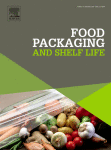
Food Packaging and Shelf Life
Scope & Guideline
Empowering researchers to enhance food preservation techniques.
Introduction
Aims and Scopes
- Development of Active Packaging Materials:
The journal emphasizes research on active packaging solutions that integrate antimicrobial agents, antioxidants, and other functional components to prolong the shelf life of food products. - Biopolymer and Sustainable Packaging Solutions:
There is a strong focus on the use of biopolymers derived from natural sources, promoting sustainability in food packaging while ensuring effective barrier properties against environmental factors. - Smart Packaging Technologies:
Research on intelligent packaging systems that include sensors and indicators for monitoring food freshness and quality is a significant area of interest, enabling real-time assessment of food status. - Migration Studies and Food Safety:
The journal addresses concerns related to the migration of substances from packaging materials into food, ensuring compliance with safety regulations and protecting consumer health. - Innovative Preservation Techniques:
The exploration of novel preservation methods, including modified atmosphere packaging and the use of natural extracts, is a consistent theme, contributing to enhanced food quality.
Trending and Emerging
- Integration of Nanotechnology in Packaging:
There is a notable increase in research on nanomaterials for food packaging, enhancing barrier properties and introducing antimicrobial functionalities to improve food safety and shelf life. - Edible and Biodegradable Packaging:
Emerging trends highlight the development of edible packaging materials and biodegradable options that minimize environmental impact while ensuring food safety. - Smart and Intelligent Packaging Systems:
The rise in studies related to smart packaging technologies, including real-time monitoring systems and indicators for freshness, is a significant trend, catering to consumer demand for transparency and quality assurance. - Use of Natural Extracts and Bioactive Compounds:
Research focusing on the incorporation of natural extracts, such as essential oils and plant-based antioxidants, to enhance the functional properties of packaging materials is gaining momentum. - Sustainability in Packaging Design:
Sustainable practices in packaging design, including life cycle assessments and the development of compostable materials, are increasingly prominent in recent publications, reflecting societal demands for eco-friendly solutions.
Declining or Waning
- Conventional Plastic Packaging Materials:
Research focused solely on conventional plastic materials without integrating sustainability or active properties is decreasing, as the field shifts towards more eco-friendly and innovative alternatives. - Traditional Chemical Preservatives:
Studies emphasizing the use of chemical preservatives in packaging are less frequent, as there is a growing preference for natural preservatives and methods that align with consumer demands for clean-label products. - Single-Use Packaging Solutions:
Research dedicated to single-use packaging without considerations for environmental impact is waning, reflecting a broader industry trend towards sustainability and recyclability.
Similar Journals
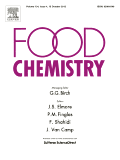
Food Chemistry
Transforming Insights into Culinary ChemistryFood Chemistry, published by Elsevier Science Ltd, is a leading international journal dedicated to the publication of high-quality research in the field of food chemistry. Established in 1976, this journal has made a significant impact in its realm, with an impressive 2023 impact factor and ranked Q1 in Analytical Chemistry, Food Science, and miscellaneous Medicine categories. It currently holds a remarkable Scopus ranking of #3 in Analytical Chemistry and #11 in Food Science, signifying its relevance and prestige among the top scholarly publications. With a wide scope that includes the chemistry of food composition, flavor, and safety, Food Chemistry serves as an essential resource for researchers, professionals, and students alike, offering insights and advancements in food analysis and technology. Access options may vary, and the journal is committed to disseminating innovative findings to foster knowledge and application in the dynamic field of food science.
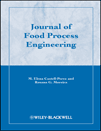
JOURNAL OF FOOD PROCESS ENGINEERING
Pioneering advancements in food process engineering.JOURNAL OF FOOD PROCESS ENGINEERING, published by WILEY, is a prestigious academic journal dedicated to advancing the field of food processing through innovative engineering research and practical applications. With an ISSN of 0145-8876 and an E-ISSN of 1745-4530, this journal serves as a crucial platform for researchers and professionals focusing on the intersection of chemical engineering and food science. Operating in the United States and established in 1977, it has gained a reputation for its rigorous peer-review process and high-quality publications, reflected in its Category Quartiles of Q2 in both Chemical Engineering (miscellaneous) and Food Science for 2023. The journal is also well-positioned within the Scopus rankings, holding the 104th spot out of 389 in Agricultural and Biological Sciences and the 82nd in General Chemical Engineering. While it currently does not offer Open Access options, the JOURNAL OF FOOD PROCESS ENGINEERING remains an indispensable resource for those looking to explore critical studies and developments that shape food processing technologies by the year 2024 and beyond.

Applied Food Research
Advancing Food Science for a Sustainable FutureApplied Food Research, published by Elsevier, is an esteemed journal that plays a critical role in advancing the field of Food Science. With an ISSN of 2772-5022, the journal has established itself as a premier outlet for high-quality research, achieving a commendable Q1 ranking in the 2023 Food Science category and a 63rd percentile in Scopus rankings for Agricultural and Biological Sciences. Covering a diverse range of topics from food safety to innovative processing techniques, Applied Food Research seeks to publish pioneering studies that enhance our understanding of food systems and contribute to broader discussions on sustainability and nutrition. As it converges on its fourth year of publication, researchers, professionals, and students alike are encouraged to engage with its content through various open access options, ensuring widespread dissemination of knowledge in a field that is vital to global health and well-being. Operating out of Amsterdam, Netherlands, this journal is poised to be an indispensable resource for anyone dedicated to making significant contributions in the domain of food science.

FOOD TECHNOLOGY AND BIOTECHNOLOGY
Empowering Researchers to Shape the Future of FoodFOOD TECHNOLOGY AND BIOTECHNOLOGY is a distinguished peer-reviewed journal published by the Faculty of Food Technology and Biotechnology, University of Zagreb, Croatia. Since its inception in 1993, this Open Access journal has become a crucial platform for disseminating innovative research in the fields of food science, biotechnology, and chemical engineering. With a commendable impact factor and consistent Q2 and Q3 rankings across multiple categories—including Biotechnology, Food Science, and Industrial Engineering—this journal not only fosters academic discussions but also addresses real-world challenges in food production, safety, and sustainability. As it converges its thematic scope from 1996 to 2024, FOOD TECHNOLOGY AND BIOTECHNOLOGY remains committed to advancing knowledge through high-quality research and interdisciplinary collaboration, making it an essential resource for researchers, professionals, and students seeking to stay at the forefront of food innovation and biotechnology.
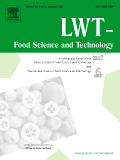
LWT-FOOD SCIENCE AND TECHNOLOGY
Innovating solutions for contemporary food challenges.LWT - Food Science and Technology is a premier academic journal published by Elsevier, specializing in the multifaceted fields of food science and technology. With a distinguished presence since its inception in 1973, this journal has evolved to become a vital resource for researchers and professionals aiming to advance knowledge in food safety, preservation, processing, and sensory analysis. Currently ranked in the Q1 quartile of food science journals, it holds an impressive Scopus ranking of 22 out of 389 in the Agricultural and Biological Sciences category, placing it in the 94th percentile. While certain articles may be available via subscription, LWT is committed to disseminating cutting-edge research that enhances food quality and innovation. This journal not only serves as a critical platform for the exchange of scientific ideas but also addresses contemporary challenges in food technology, ensuring that it remains essential for scholars, industry professionals, and students alike seeking to contribute to and stay abreast of advancements in the field.

International Food Research Journal
Transforming Ideas into Impactful Food ResearchThe International Food Research Journal, published by UNIV PUTRA MALAYSIA PRESS, serves as a pivotal platform for disseminating innovative research within the field of food science. With an ISSN of 1985-4668 and an E-ISSN of 2231-7546, the journal has successfully established its presence since its inception in 2007, converging its findings through 2024. This esteemed journal holds a Q3 ranking in Food Science, illustrating its valuable contributions to the field as demonstrated by its Scopus rank of 276 out of 389, placing it in the 29th percentile among its peers in Agricultural and Biological Sciences. Although it operates under a traditional publishing model, its academic integrity and focus on high-quality research ensure that it remains a vital resource for researchers, professionals, and students eager to explore advances in food technology, nutrition, and safety. By encouraging interdisciplinary collaboration and critical dialogue, the International Food Research Journal plays an essential role in shaping the future of food science research.
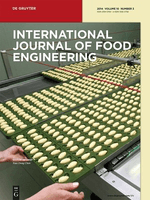
International Journal of Food Engineering
Pioneering Research for a Sustainable Food FutureThe International Journal of Food Engineering, published by WALTER DE GRUYTER GMBH, serves as a pivotal platform for cutting-edge research in the field of food engineering. With an ISSN of 2194-5764 and an E-ISSN of 1556-3758, this journal focuses on innovative technologies, production processes, and quality control within food systems. Located in Germany, the journal has gained notable recognition, as reflected in its Scopus rankings, which place it within the 61st percentile in miscellaneous engineering and the 50th percentile in food science. Although it operates under a traditional access model, the journal's striking category quartiles signify its importance: achieving Q2 in Engineering and Q3 in both Biotechnology and Food Science in 2023. By fostering interdisciplinary research, the International Journal of Food Engineering aims to connect scientists, engineers, and industry professionals, ultimately contributing to advancements in food safety, sustainability, and nutrition. Join a vibrant community of experts driving innovation and addressing global food challenges through your contributions to this esteemed journal.
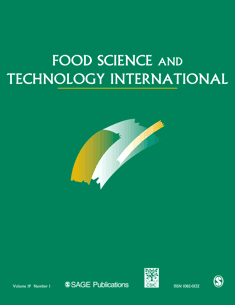
FOOD SCIENCE AND TECHNOLOGY INTERNATIONAL
Transforming food technology through cutting-edge research.FOOD SCIENCE AND TECHNOLOGY INTERNATIONAL, published by SAGE Publications Ltd, is a premier journal in the fields of food science and technology, serving as a crucial platform for the dissemination of innovative research and practical applications from 1995 through to 2024. With an impact factor reflecting its significant standing—ranking in the Q2 quartile for Chemical Engineering, Food Science, and Industrial and Manufacturing Engineering—this journal plays an instrumental role in advancing the interdisciplinary study of food systems. Researchers, professionals, and students can access high-quality contributions that address the latest developments and trends in food technology, safety, and processing. Located in the United States, FOOD SCIENCE AND TECHNOLOGY INTERNATIONAL also boasts commendable Scopus rankings, ensuring its articles are both relevant and widely cited within the academic community. As a vital resource for anyone engaged in food science research, этот журнал fosters knowledge sharing and innovation in the ever-evolving landscape of food technology.

ACS Food Science & Technology
Fostering Collaboration in Food Chemistry and TechnologyACS Food Science & Technology is a premier peer-reviewed journal published by the American Chemical Society (ACS) that addresses the dynamic intersections of food science, chemistry, and technology. With its E-ISSN: 2692-1944, this journal aims to disseminate innovative research and comprehensive reviews that enhance understanding in fields such as analytical chemistry, organic chemistry, and general food science. Despite the absence of an Open Access model, its position in the Q2 quartile for multiple categories in 2023 underscores its significant impact on the scholarly landscape, ensuring researchers can access high-quality research pertinent to today's food challenges. With an expanding timeline of 2021 to 2024, ACS Food Science & Technology is poised to be an essential resource for advancing the scientific community's knowledge, fostering collaboration, and bridging gaps between academia and industry.
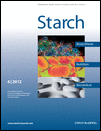
STARCH-STARKE
Connecting Researchers Through Starch ExplorationSTARCH-STARKE is a prestigious journal published by WILEY-V C H VERLAG GMBH, focusing on the intricate fields of Food Science and Organic Chemistry. Established in 1949, this journal has carved a niche for itself as an essential resource for researchers and professionals seeking to explore the complexities of starch and its derivatives. With an impressive Scopus ranking—#139 in Food Science and #97 in Organic Chemistry—STARCH-STARKE holds a Q2 category position in both fields as of 2023, showcasing its significant impact and contribution to academic discourse. Although it does not offer open access options, the journal’s rigorous peer-review process ensures that the published content maintains the highest quality standards, making it an invaluable reference for students and seasoned researchers alike. With coverage spanning from 1949 to the present, STARCH-STARKE remains at the forefront of innovation in starch research, addressing both theoretical and practical applications.